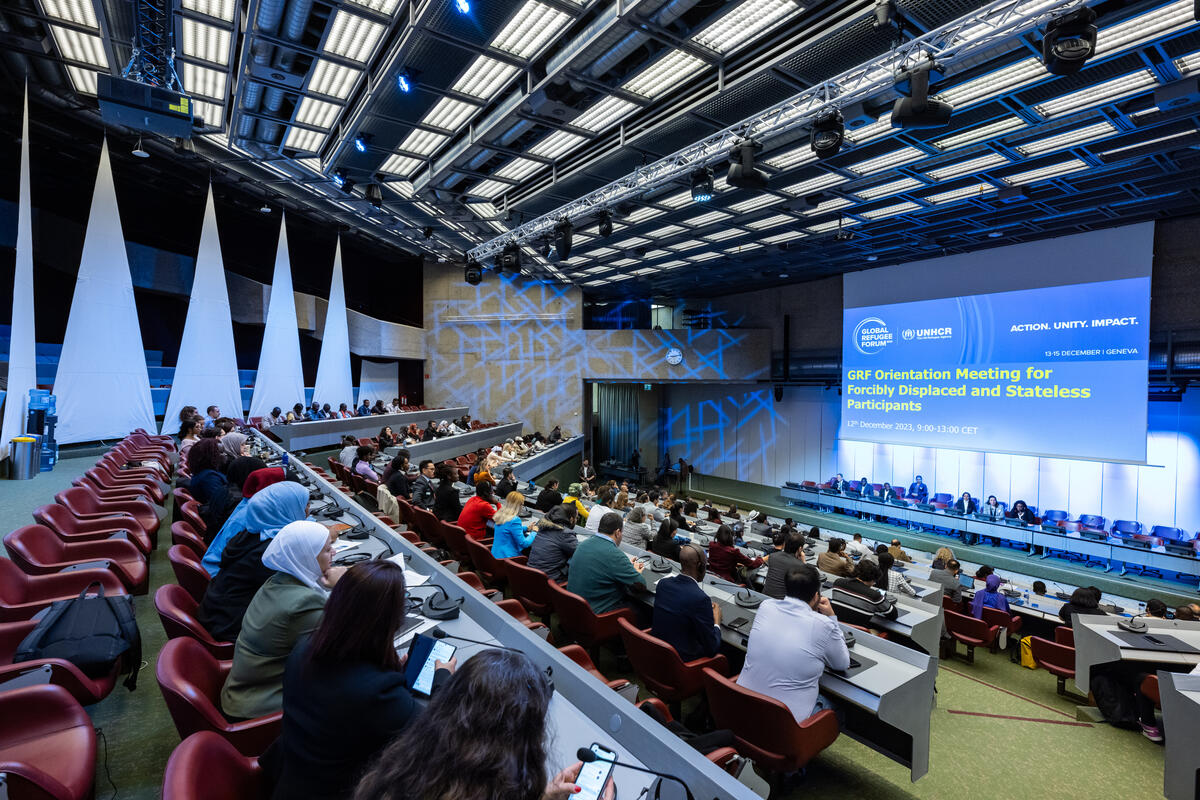UNHCR details role in Sangatte closure, urges assistance for all Afghans keen to repatriate
UNHCR details role in Sangatte closure, urges assistance for all Afghans keen to repatriate

GENEVA, July 16 (UNHCR) - The UN refugee agency today welcomed the recent agreement on the Sangatte centre and provided more details on its involvement in the process leading up to the centre's closure.
"The Sangatte situation was not only a thorny issue between Britain and France, but also had a detrimental effect on the wider asylum debate in Europe," said UNHCR spokesman Rupert Colville at a press briefing in Geneva on Tuesday.
The controversial Red Cross Centre in Sangatte, near Calais in France, hosts more than 1,300 asylum seekers - mostly from Iraq and Afghanistan - some of whom have tried to enter Britain through the nearby Channel Tunnel. On June 12, the governments of France and the UK agreed to close the centre down by the first quarter of 2003.
UNHCR will be involved in three aspects of the process leading up to Sangatte's closure, said Colville. Its staff will be responsible for the initial registration of the centre's inhabitants, providing them with information on their various options and possible protection needs.
The agency will also offer objective information to Afghan asylum seekers about the current situation in Afghanistan. For those who decide to go home, UNHCR will help organise their voluntary repatriation and co-ordinate their return with the Afghan government.
"The return programme will be similar to those being proposed for Afghans elsewhere in the world," said Colville. "It will involve a package that will include financial assistance, and careful counselling before they depart, as well as integration into UNHCR assistance programmes once they are back home in Afghanistan."
In addition, the agency will help identify unaccompanied Afghan minors in Sangatte who should be moved to specialised centres. In some cases, they may be helped to return home "if it is in the children's best interests to repatriate". This might, for example, include cases where close family members can be located in safe parts of Afghanistan.
UNHCR's role in the lead up to Sangatte's closure is in line with its new position on Afghan asylum seekers. In a separate statement on Tuesday, the agency announced that it is now encouraging governments to offer repatriation assistance to all Afghans who may wish to go home.
"The time is now ripe for Afghans - wherever they are and at whatever stage they may be in the asylum process - to be offered the option of voluntary repatriation," said the statement, citing improved conditions in Afghanistan.
UNHCR emphasised that, for the time being, it was focusing only on voluntary repatriation as the country still faces serious problems. It advised governments that the return process for Afghans without protection needs should be "phased, co-ordinated, orderly and humane".
"If a significant number of Afghans take up the voluntary repatriation option and withdraw their applications, it would also help relieve systems in a number of states," said the statement, noting a sharp drop in the number of new Afghan asylum seekers lodging claims in Europe.
To keep returns sustainable, UNHCR also recommended that host states offer realistic repatriation assistance packages and develop programmes like vocational training to contribute to the broader goal of Afghanistan's reconstruction.




